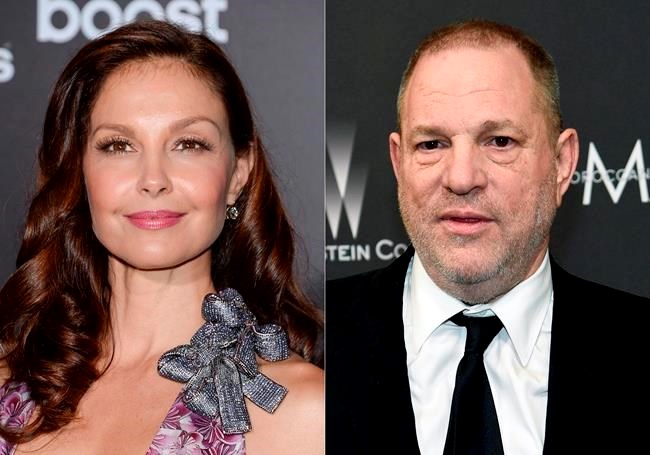LOS ANGELES — A federal appeals court on Wednesday restored a major part of Ashley Judd’s lawsuit against Harvey Weinstein, finding that the producer had power over the actor which should make her able to sue under a California sexual harassment law.
A three-judge panel of the 9th U.S. Circuit Court of Appeals found that Judd should be allowed to pursue both parts of her lawsuit against Weinstein. A lower court judge dismissed her sexual harassment allegations but left intact her claim of defamation.
Judd filed the lawsuit in 2018, alleging that in a meeting at a Beverly Hills hotel in late 1996 or early 1997, the producer tried to coerce her to watch him shower and give him a massage, then smeared her in Hollywood as a “nightmare” to work with after she rejected him.
Judd's attorneys had sued Weinstein under a California law that prohibits sexual harassment by people, other than employers, with professional power, including teachers and landlords.
The court agreed that the law could apply to situations like the one Judd faced, when she was dealing with Weinstein but not working for him.
"Weinstein was uniquely situated to exercise coercive power or leverage over Judd, who was a young actor at the beginning of her career at the time of the alleged harassment,” U.S. District Judge Mary Murguia wrote in the opinion. “Moreover, given Weinstein’s highly influential and ‘unavoidable’ presence in the film industry, the relationship was one that would have been difficult to terminate ‘without tangible hardship’ to Judd, whose livelihood as an actor depended on being cast for roles.”
Judd's lawyers made it explicit when she filed the lawsuit that she was suing in part to broaden the use of the law to protect against predatory relationships in Hollywood, and praised the 9th Circuit decision Wednesday.
“This is an important victory not only for Ms. Judd but for all victims of sexual harassment in professional relationships," Judd's attorney Theodore Boutrous Jr. said in a statement. "The court correctly holds that California law forbids sexual harassment and retaliation by film producers and others in powerful positions, even outside the employment context, and we look forward to pursuing this claim against Mr Weinstein at trial.”
An email seeking comment from Weinstein's attorney, Phyllis Kupferman, was not immediately returned. Kupferman said previously that Weinstein did not hurt Judd's career but promoted it, approving her for roles in two of his films.
The ruling comes two weeks after a judge in New York rejected a $19 million settlement between Weinstein and many of the women suing him for sexual misconduct. Judd was not involved in the proposed agreement.
The 52-year-old star of “Kiss The Girls” and “Double Jeopardy” was among the women who told their Weinstein stories to the New York Times and the New Yorker in 2017, making the #MeToo movement a global phenomenon.
She sued Weinstein the following year after director Peter Jackson said in an interview that Weinstein had warned him against working with Judd when he considered her for the “Lord of the Rings” films.
The lawsuit had been on hold through the completion of Weinstein's criminal trial in New York, where the 68-year-old producer was convicted of rape and sexual assault against two women. He faces similar charges in Los Angeles.
Weinstein has repeatedly denied engaging in any non-consensual sexual activity.
___
Follow AP Entertainment Writer Andrew Dalton on Twitter: twitter.com/andyjamesdalton.
Andrew Dalton, The Associated Press




